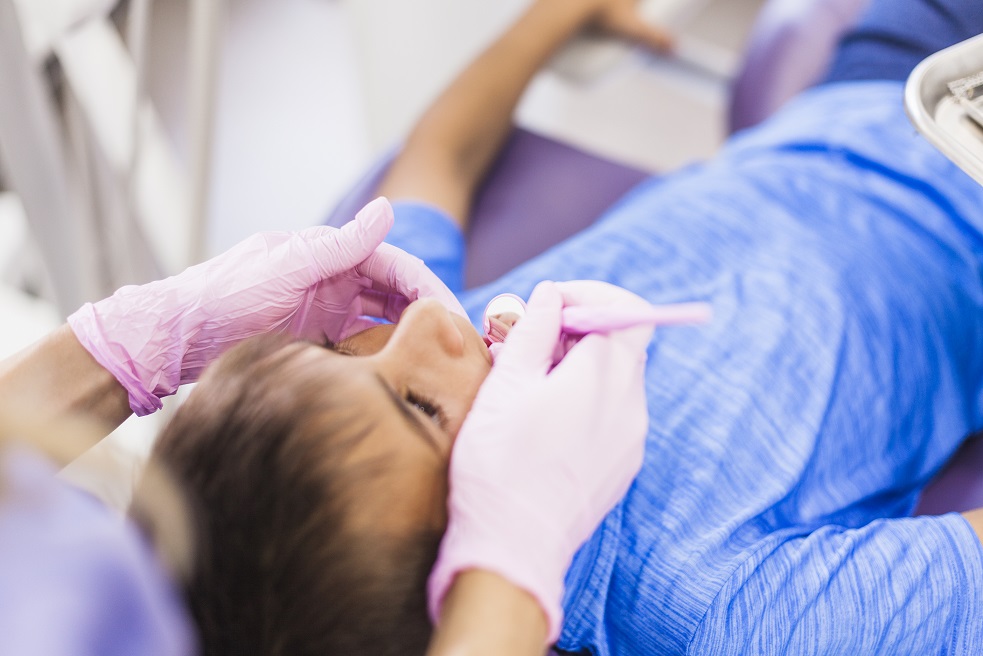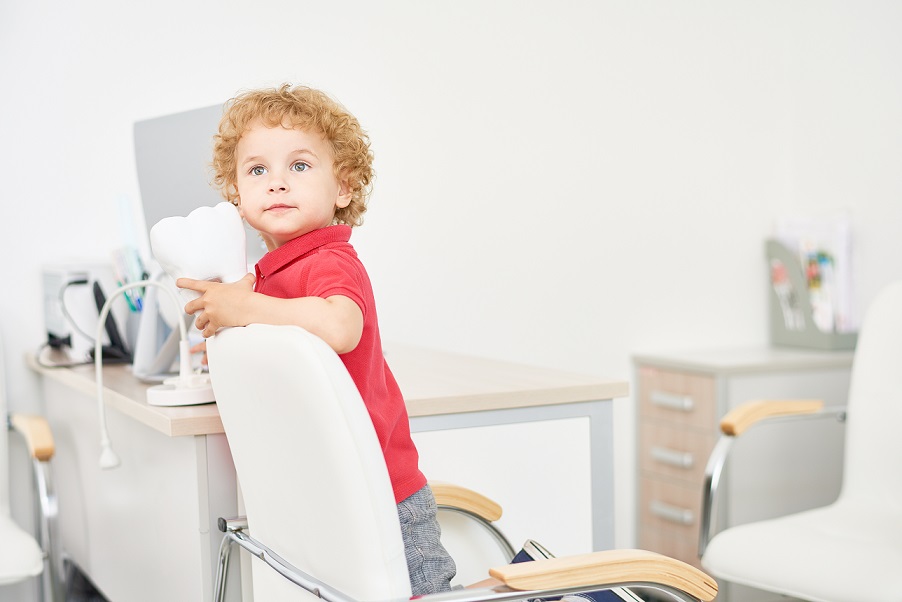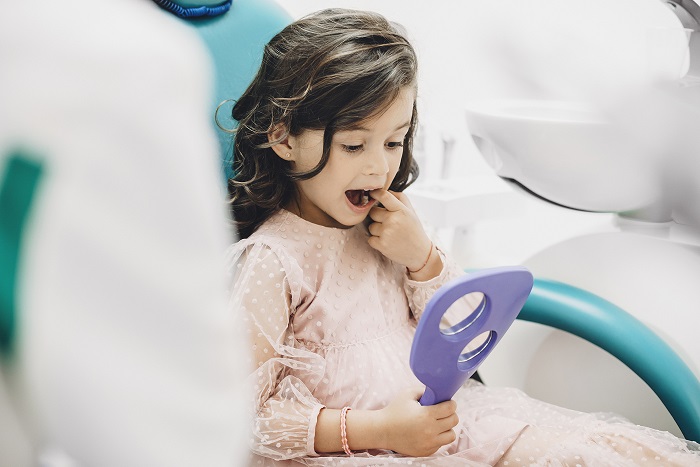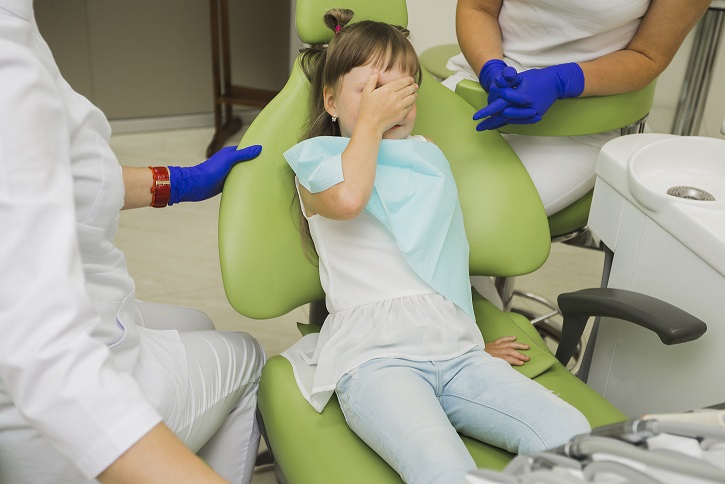Having to lie down on a chair in a cold room while having a masked person probing our teeth is not exactly a fun experience. Hence, it is not surprising that research found 33.1% of children studied had ‘dental fear and anxiety’ or also known as DFA (Gao and Wu, 2018). This can be a major hindrance in getting quality dental care especially when we are encouraged to visit the dentist every six months apart. It can also be challenging to convince our kids that the visit to a dentist is fine when we, as adults, are not very fond of seeing the dentists ourselves. Nonetheless, here are some of the things you can do to help reduce your child’s fear of dentists.

Choose a pediatric dentist (if possible)
Although all dentists have the same basic dental training, pediatric dentists are more specialised in treating children. In fact, often, they are required to take additional years of training to learn how to deal with children’s behaviour and how to make children feel more at ease during their treatment. Because their practices are catered specially for children, typically, the pediatric clinics look more kid-friendly with colourful decorations and fun play area. These practices also use smaller tools that can fit children mouth better so that children feel more comfortable.
Read: Ted-Ed Animated Videos to Teach Children About Health and Hygiene
Start early

The sooner you introduce your children to dental visits, the less likely they are to be anxious when they see the dentist. The American Academy of Pediatric Dentistry suggests parents to bring their children for a dentist appointment when they start having their first tooth or when they reach one year old. This is so that they are more accustomed to the routine and familiar with the dentist (if you are considering to meet the same dentist). An early checkup will also allow the dentist to share about their concern on your child’s oral health, and give you any prevention tips so that your children would not need to undergo a more extensive (and expensive) treatment later on.
Introduce your children to the dentist first
Prior to their checkups, you can ask your dentist if they are free to meet your child to introduce themselves and share with your little ones about what do they want to check. Often, children are scared of meeting a dentist because they do not know what to expect. They might think that the doctor wants to take out their teeth when actually they just want to examine it. If you have any dentist friends, you can also get them to talk to your kids about their work too.
Refrain from bribing your children

It is best to avoid promising your children a treat or a present if they did well at the dentist as it will only cause them to think that the visit might hurt them. What if they refuse to go to the dentists because what you offered is not what they want? Plus, some parents tend to allow their children to have ice cream or other sugary treats as a reward for behaving. This action is counterproductive as dentists would often advise children to be careful of sweet delicacies because it can cause cavities.
Do not say these two words – ‘hurt’ and ‘painful, to your child
Sometimes, to reassure our children that they are going we okay during the dental visit, we tell our children “It’s okay, it won’t hurt” or “It is not going to be painful.” These negative words, although not meant to, will cause our children to be more apprehensive about the treatment. Instead, use positive words to commend them after they are done with their dental visit by telling them that they did very well during the session, or maybe even give them a little surprise gift after that.
Avoid any gory stories or negative dental experiences

In the effort to console children, parents have this tendency to share their own stories too. This can be a bad idea if you yourself, do not enjoy dental visits. From wanting to show empathy, that you understand how they feel, you might accidentally tell them about your negative experiences. This can cause your children to be even more anxious. When this happens, it is going to be hard to backtrack.
Stay calm and ensure that your kids are full
Generally, people get grumpy when they are hungry. But when children are hungry, they can be harder to handle. Therefore, best to make sure that your children had eaten beforehand, or that you have some light snacks prepared for them while they wait for their turn. However, it is also essential that your child is not too full prior to the appointment. Some children, especially those who are new to dental visit might have a high gag reflex, so they might vomit when the dentist is checking their oral cavity if they are too full.
These are just some of the tips that we found helpful in easing a child’s fear of dentists. Try these methods with your children and let us know if they work for your kids!








